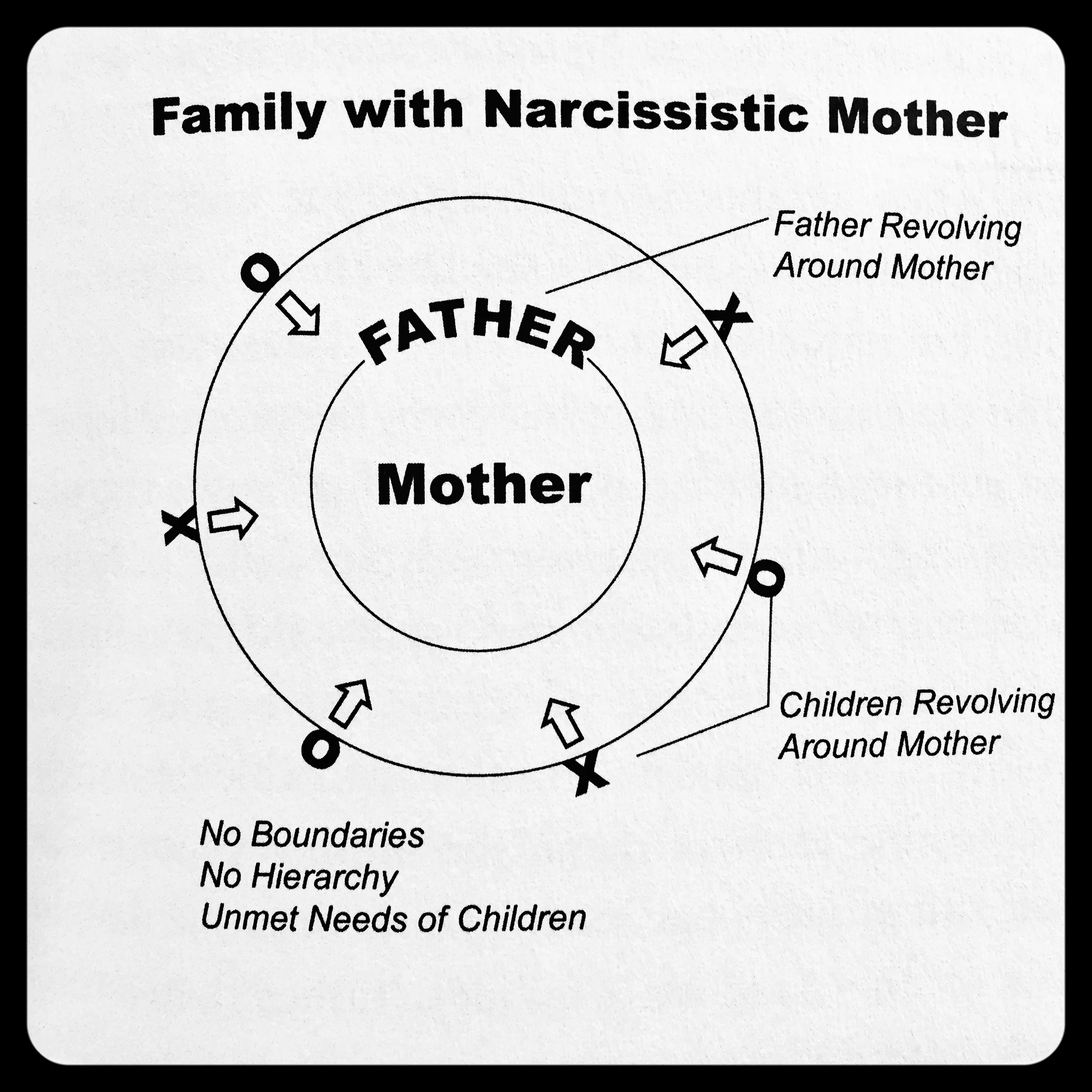4 Things You Do After Growing Up With Narcissistic Parents
Narcissism Personality Disorder is a mental health issue which does not have to be synonymous with being mean or vindictive or even a bad parent. But when all those qualities align we, as children, are forced to learn bad habits in order to survive our toxic environment.
But, make no mistake, it doesn’t mean we are victims. It just means we’ll need a bit of time and patience to learn how to reconcile those incorrect lessons and attain a healthier mindset.
To start, here’s a list that may help identify negative coping behaviors we may have picked up through our shared experiences as children of narcissists. From this, I hope you can assess your personal well-being and start taking the necessary steps to move forward, and yes, best with a trained professional.
1. You Think Everything Is Your Fault
Because narcissists are not capable of admitting their faults, they end up blaming others around them for their mistakes. As a child, relying on my parents to explain right from wrong, I quickly learned to accept that whatever I did was always wrong.
When my mother didn’t get sole custody of me, it was because I didn’t mention during my deposition that my father used to beat me. I was six. I didn’t like to lie so I cried when we left the lawyer’s office because I knew I had let her down. I have zero recollection that my father ever laid a hand on me to this day. I am certain he never did.
So it went on. Did mother miss the deadline to submit important paperwork? It was because I didn’t sit down to write it with her. Did my dad skip a ski trip? That was because he had to spend money on stupid braces for my crooked teeth.
As an adult, I often must remind myself that I am not a failure before I start a task. And that doing things for people isn’t the only way to earn their love. Since I never knew an adult who would own up to their own mistakes, I often even take on the responsibility for mistakes I didn’t make, just in case, so that I can fix things before people around me get upset. Which leads me to...
2. You Feel Like Everyone’s Happiness Is Your Responsibility
Narcissists live in a very heliocentric model of the world, with them being in the middle.
In my case, my father also revolved around himself, and later around my stepmother
As a result, whether it was appropriate or not, my parents would push their problems onto me, asking for advice or to cheer them up by reminding them how wonderful they were. Basically, I ended up parenting my parents quite often.
I would find myself actively trying to make my mother smile even after she had demeaned me. She would complain that I was trying too hard by wearing makeup. And then follow up by asking me to do her makeup and hair to make her feel pretty.
For my father, it was letting him know that he was always doing a good job. He used to ask me to sit with him while he drank, to complain about his current marriage. Sparing no details, no matter how inappropriate they were. If I even mentioned that he might be happier away from his wife, he would remind me that being happy has nothing to do with a marriage: “You have to stick around if for no other reason, to avoid paying alimony.” Naturally, after a while, these sessions became a designated time for me to remind my father how costly a third divorce might be.
As an adult, I often have to remind myself that I cannot be expected to keep everyone happy all the time. The harder lesson was figuring out that being upset or unhappy is okay. We go through a spectrum of emotions throughout our lives and cannot possibly be expected to hold onto joy no matter the circumstances.
3. If You’re Happy, It Is At The Expense of Other People’s Joy
Narcissists cannot consider the desires of others and will manipulate those around them to ensure that their needs always come first. I internalized this to mean that if I ever did something I might enjoy, it would hurt my parents because I did not prioritize their needs. Whenever I was happy, my emotions would quickly swing to guilt. Being happy was tied to the notion that I had inevitably let someone down.
This spell was broken when I was on a date one Thursday evening and received a call from my stepmom. She was upset I had not done my chores (specifically, clean two of the three bathrooms in the house), even though normally they were expected to be completed on Friday evenings or Saturday mornings.
She knew how much I liked my date. At home, for the past week, I could not stop talking about him and his lovely family. That call ended up being the best argument I ever had. As my step-mom started to complain about how I had yet to clean and therefore should have been home and not on some date, I finally felt free. It clicked that if I was ever happy, it would upset her, and there was nothing I could do to change that. Her reaction finally freed me from continuing to attempt the unachievable.
As an adult, I am still working to un-learn this. I often self-sabotage and always look for the worst in any situation so as to prepare for the impending pain before it hits me. Basically, if I am always upset, no hurt can surprise me.
4. You’ve Self-Diagnosed Yourself With Narcissism
Self-diagnosing is easy when you have the internet. It’s what the whole WebMD website advertising model is based around.
Psychology research has fascinated me since high school. But, whenever I find something relating to Narcissism, I find I am holding my breath, stressed over the criteria. Checking them against my own desires. Are these things I wish I did? Is this something inside of me that’s dormant waiting to come out?
Since I can remember, my mother loved to remind me that I was ungrateful and was being narcissistic, just like my dad. In any argument we had, she would add that I never cared about her and only loved myself, and only worried about my own needs.
I kept in touch over the phone after I moved away. About once a month during a call she is sure to remind me how selfless she was for letting me go; for forcing herself to live alone, so that I could be happy.
I’ve developed an internal reprimanding voice, that reminds me of my past discretions whenever I try to put them behind me. The sad part is, I am still a bit scared for it to go away. For me, it feels like if I stop hearing the voice, I will be without a check to keep me thinking of others.
In my present therapy sessions, I work hard to combat that negative voice. I don’t always win, but I am determined to quiet it down once and for all one day.
Family model image taken from "Will I Ever Be Good Enough," by Dr. Karyl McBride Ph.D.
Family with child photo by freestocks.org from Pexels
Do you ever worry you’re narcissistic? Do similar memories taunt you in your day to day life? Do you feel like I missed an important indicator of abuse? Let me know in a comment section of your choosing.




